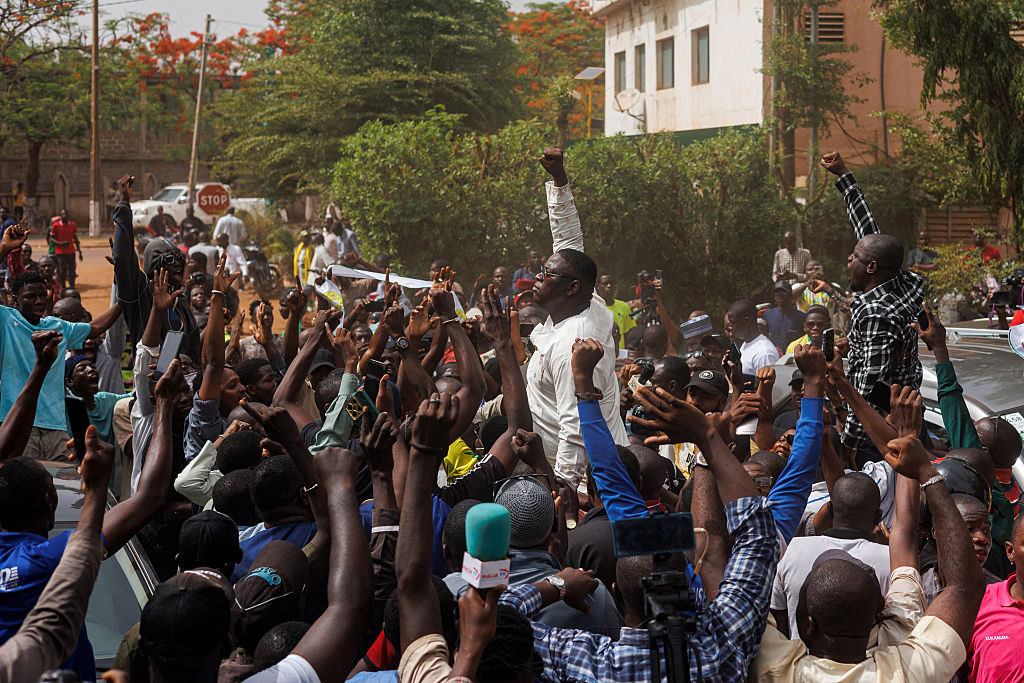The year 2021 was marked by four coups in Africa. It was the crest of a wave of military rulers seizing power.
After 10 years of relative stability on the continent, 10 coups took place between 2019 and 2023 in Burkina Faso, Chad, Gabon, Guinea, Mali (twice), Niger and Sudan (twice).
United Nations Secretary-General Antonio Guterres called it “an epidemic” and spoke of an “environment in which some military leaders feel they have total impunity” and “can do whatever they want because nothing will happen to them.”
Salah Ben Hammou, a postdoctoral research associate at Rice University, has studied and written about military coups for nearly a decade, giving special focus to the recent wave of putsches in Africa. His analyses have led him to conclude that coups are not isolated events. They can spread across borders, or the epidemic can be blunted by a swift response from international and regional communities.
“Coup leaders are not only seizing power, they are learning from one another how to entrench authority, sidestep international pressure and craft narratives that legitimize their rule,” he wrote in a July 6 article for The Conversation Africa website.
There have been 492 attempted or successful coups around the world since 1950. Africa has experienced 220 — by far the most of any region — with 109 successful coups. Of the 54 countries on the continent, 45 have had at least one coup attempt since 1950, according to data collected by researchers Jonathan Powell and Clayton Thyne.
In the Sahel, the juntas of Burkina Faso, Mali and Niger left the Economic Community of West African States (ECOWAS) amid questions and scrutiny over the regional bloc’s responses to each military takeover. ECOWAS Commission President Omar Alieu Touray listed the “unconstitutional change of government” among the foremost concerns in West Africa.
“We are confronting the greatest challenges we face today,” he said on May 28 in Lagos, Nigeria during an event to mark 50 years since the bloc’s formation.
Hammou, who studied under Powell, offered insights into what coups in Africa, particularly in the Sahel, have in common. He hopes that lessons learned will help improve international and regional responses.
Contagion: For military leaders in unstable countries, the way one coup can lead to another is not coincidence.
“Potential coup leaders watch closely, not just to see if a coup succeeds but what kinds of challenges arise as the event unfolds,” Hammou said. “When coups fail and plotters face harsh consequences, others are less likely to follow.”
Likewise, if a coup succeeds it can embolden officers in neighboring countries to follow the same playbook.
Civilian support: Popularity often greets the leaders of military juntas, helping them to consolidate power and brace their regimes against local opposition, sanctions and regional pressure.
“It signals to potential coup plotters that military rule can win legitimacy and public backing,” Hammou said.
Entrenchment: The shared blueprint has evolved recently for junta leaders in Africa to retain power rather than step aside and influence the formation of the next government.
Elections and constitutional changes have been used in several countries to rebrand military regimes as transitional authorities, though there are few limits to their power or their terms of leadership. Meanwhile, the role of the armed forces remains central to the government.
Response: Neighboring states and regional economic communities on the continent play a critical role along with the international community. Hammou believes it is important for regional blocs to be consistent when it comes to responding with economic sanctions, political pressure or even military intervention.
“When those responses are weak, delayed or inconsistent — such as the absence of meaningful sanctions, token aid suspensions or symbolic suspensions from regional bodies — they can send the message that the illegal seizure of power carries few legitimate consequences,” he said.
Hammou said that while the first phase of Africa’s wave of coups raised attention and concern around the world, the present phase is more dangerous.
“It is this quieter second stage — the slow entrenchment of military regimes — that will determine whether these regimes will become permanent fixtures,” he wrote in a July 9 article for Foreign Policy magazine. “Stopping the spread now depends not only on deterring the next coup, but also on undermining the playbook that keeps coup leaders in power long after the headlines fade.”

